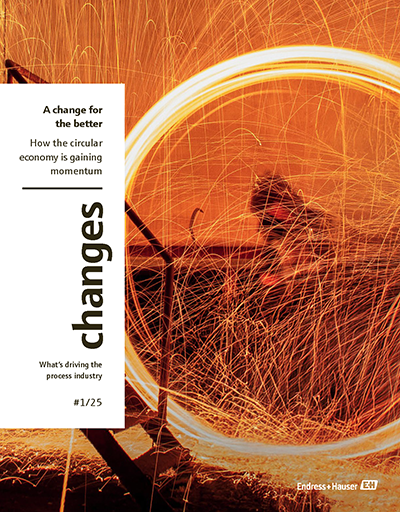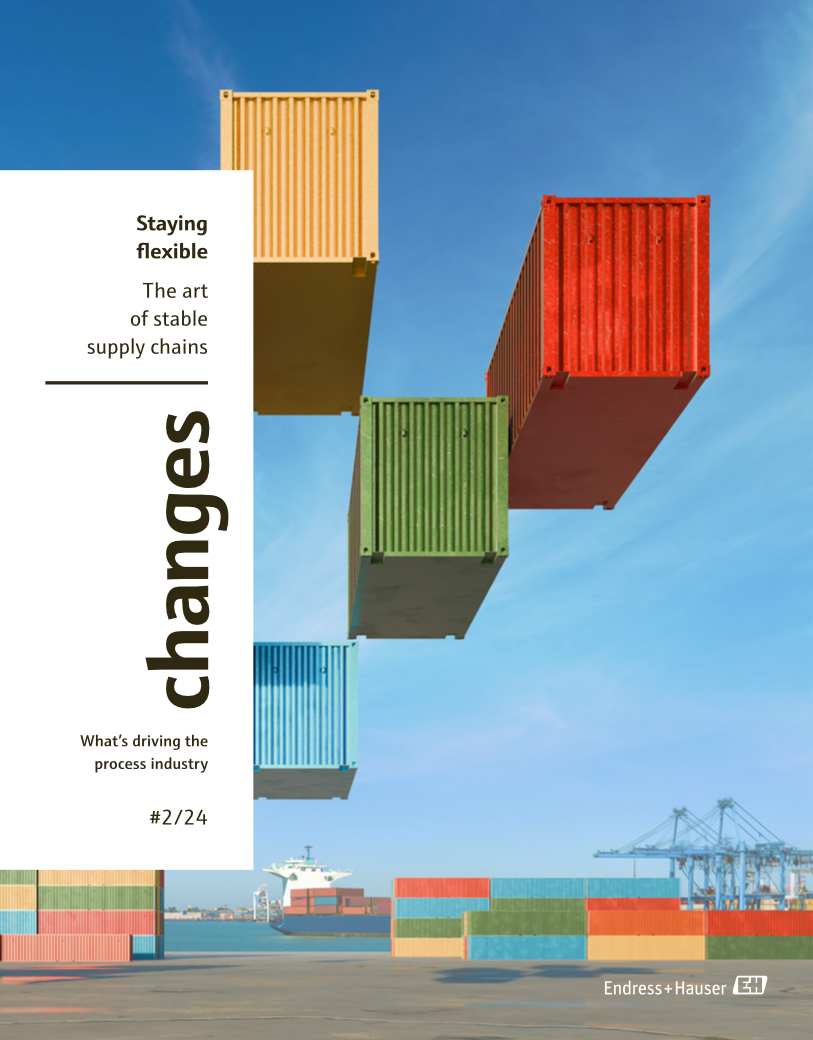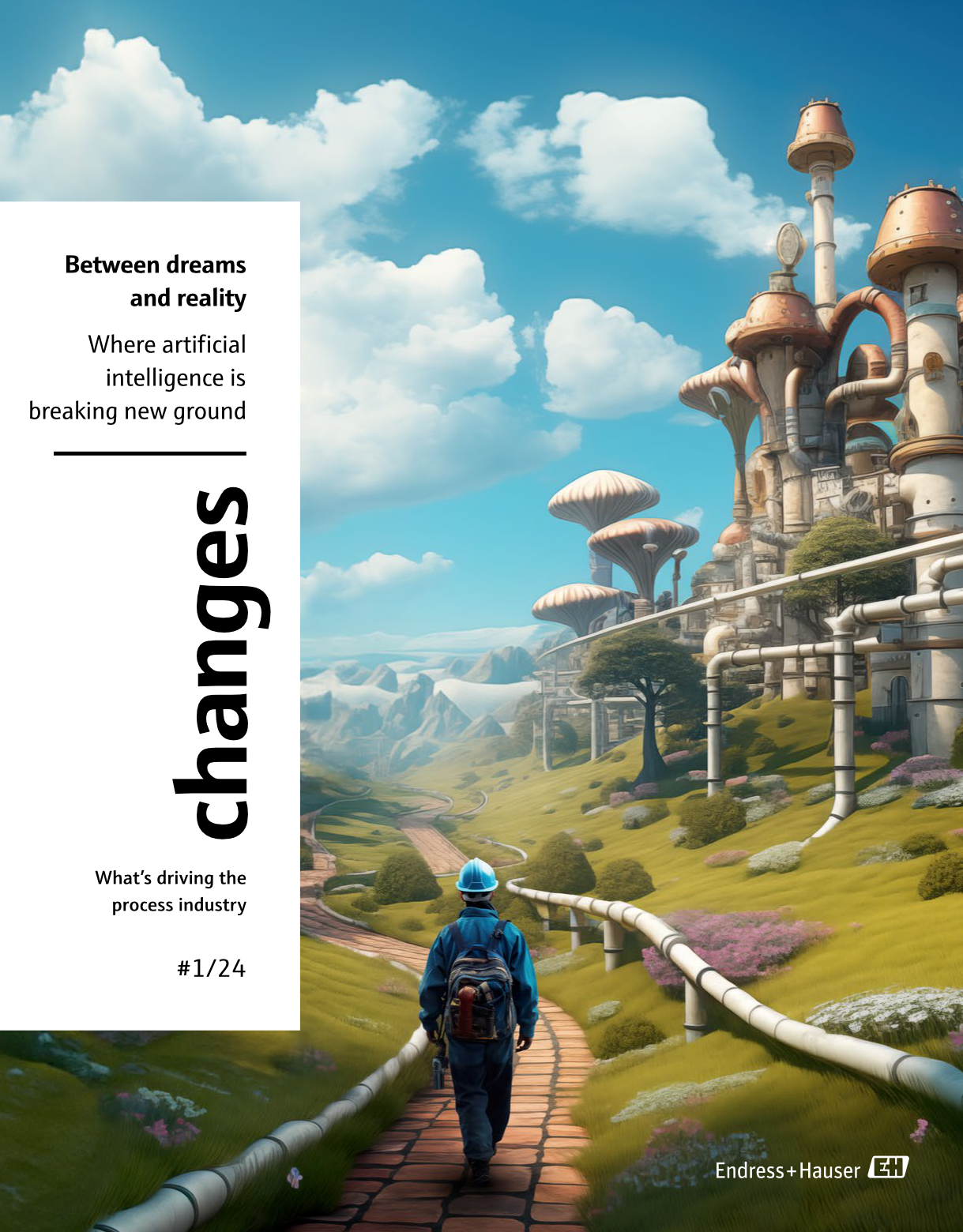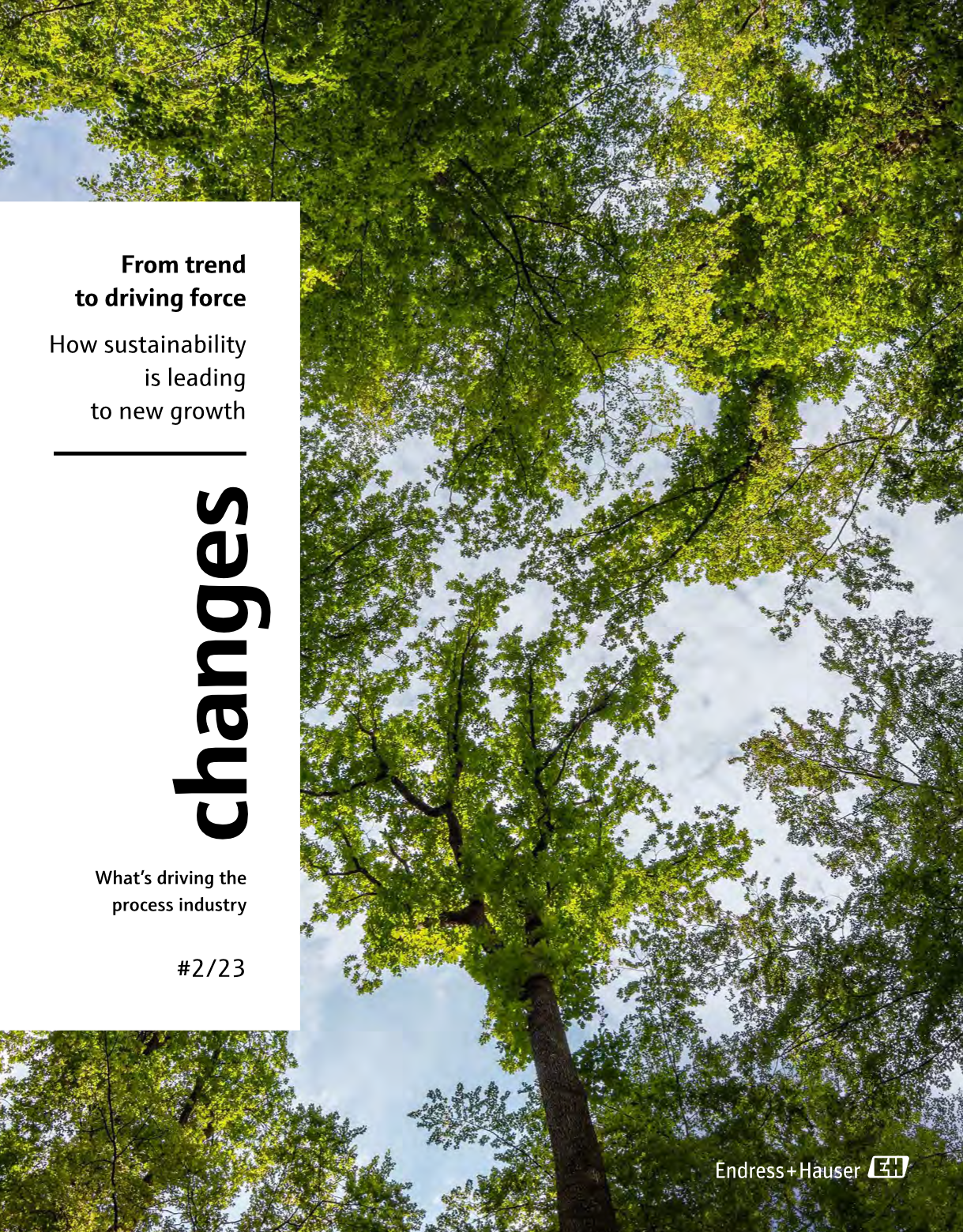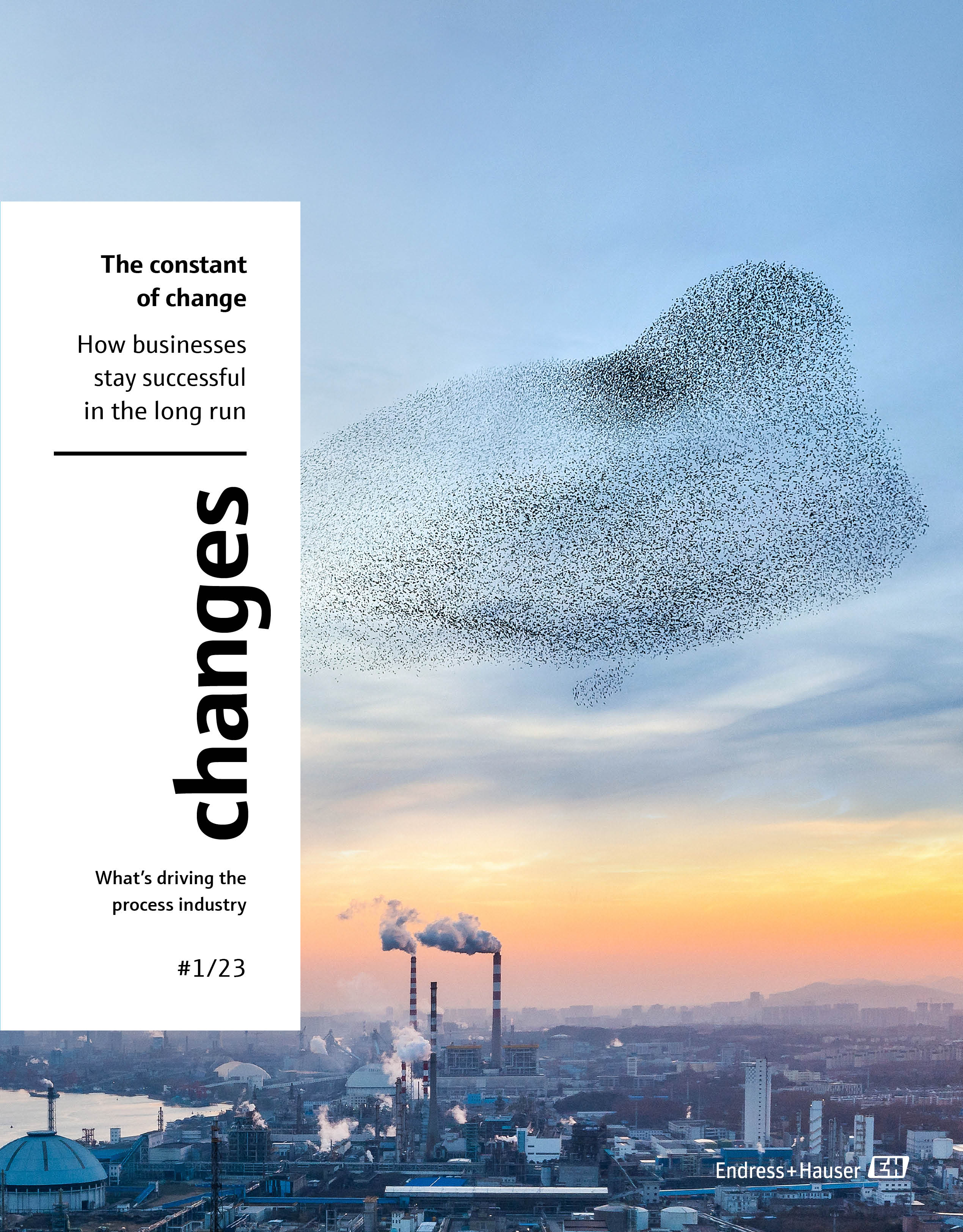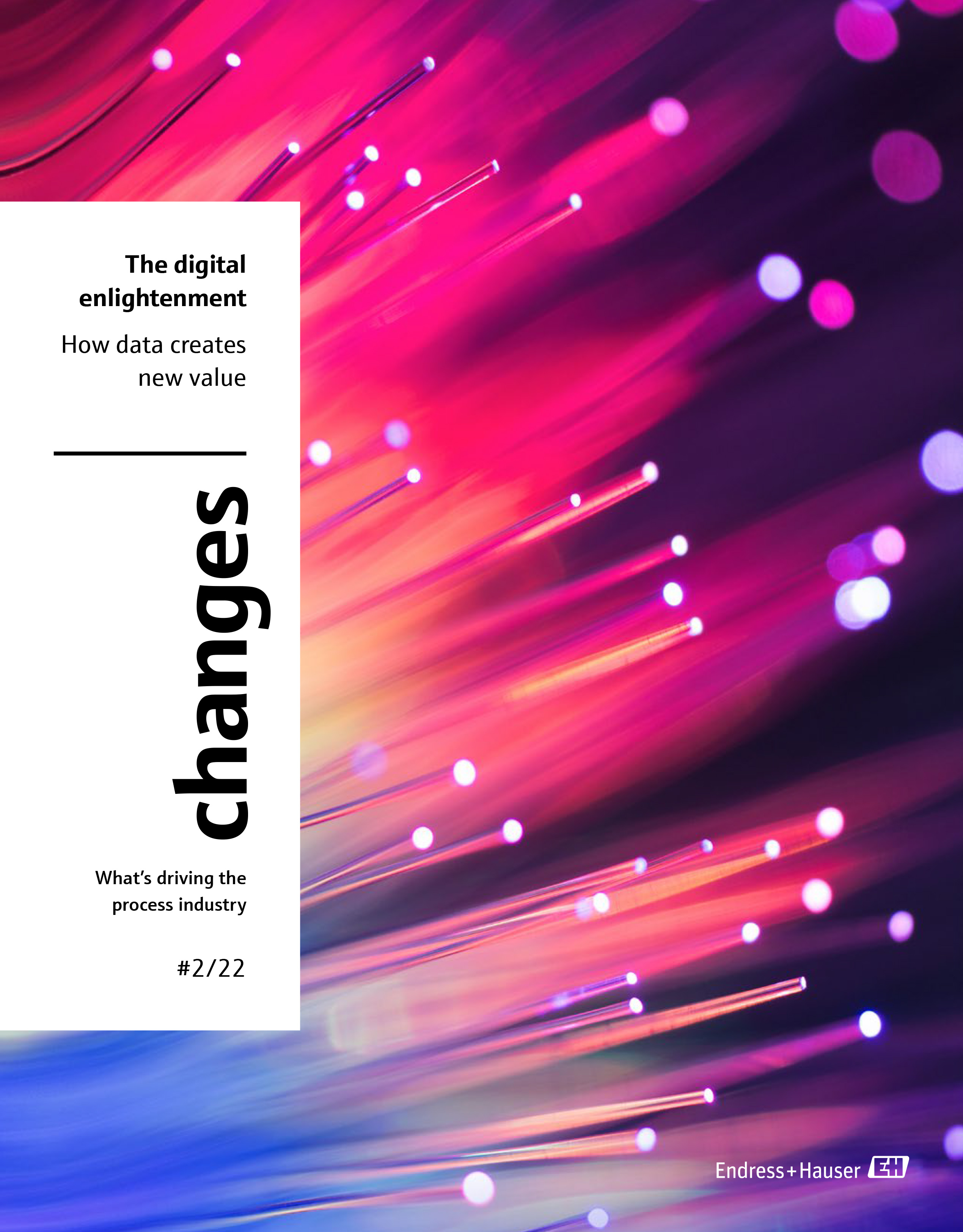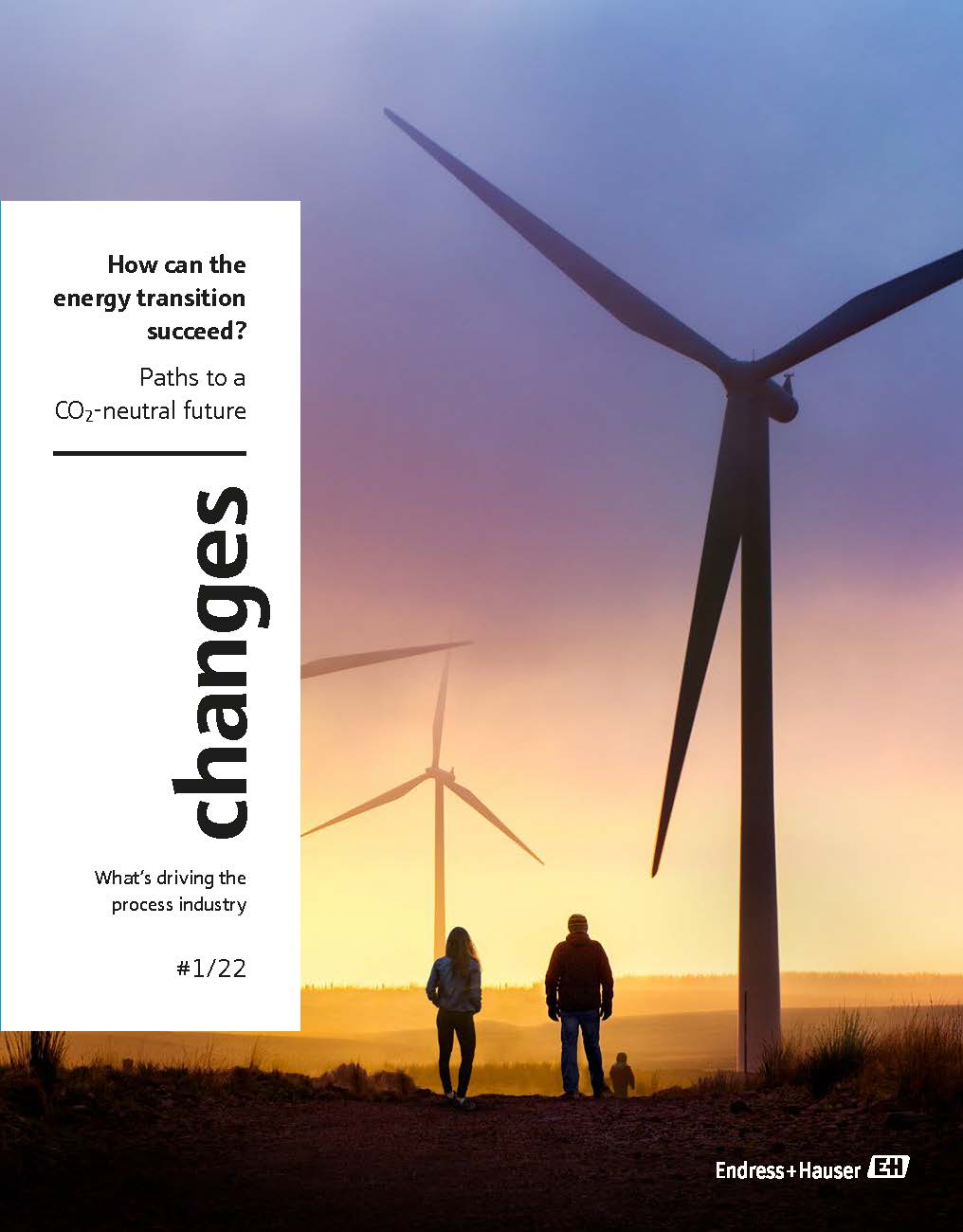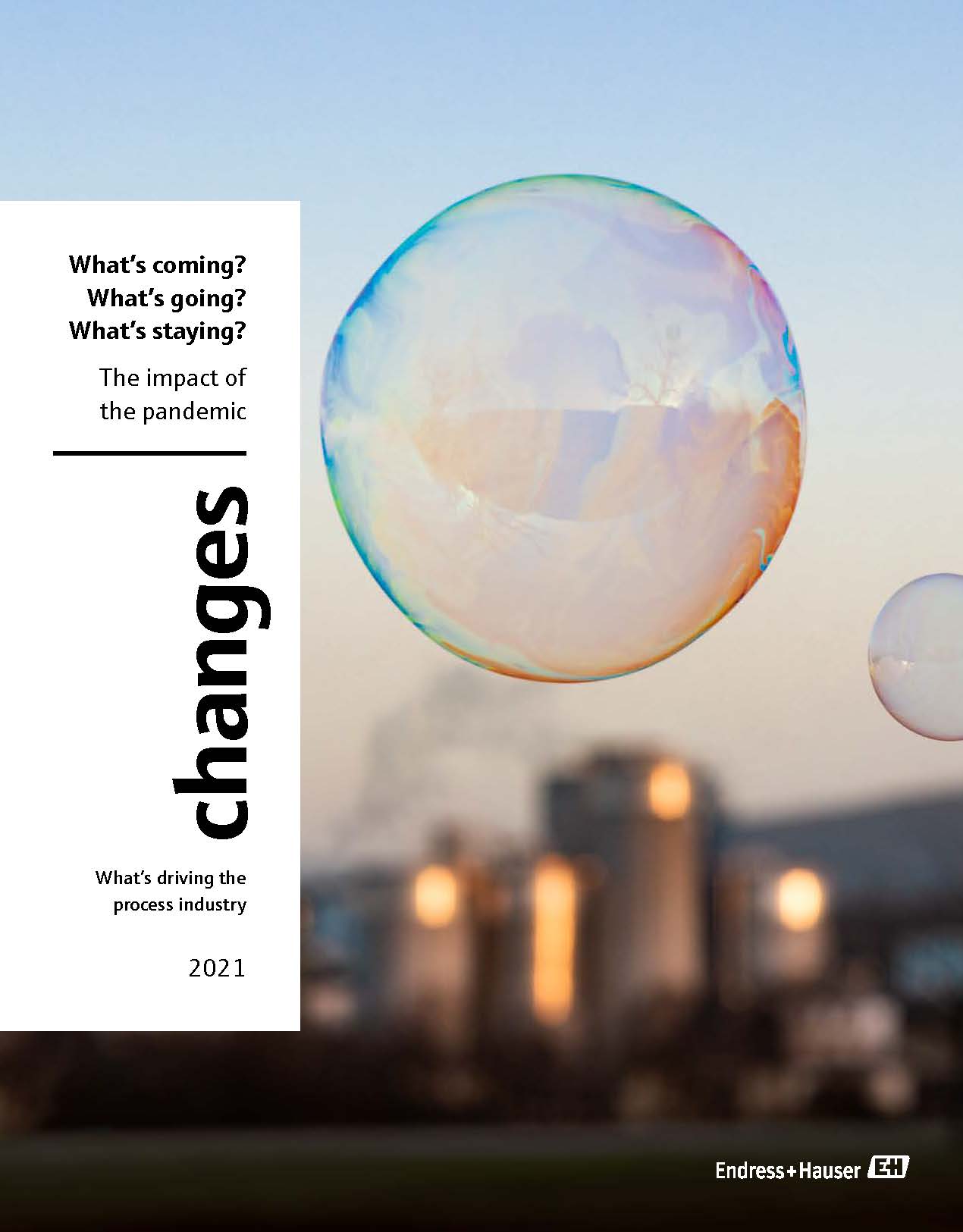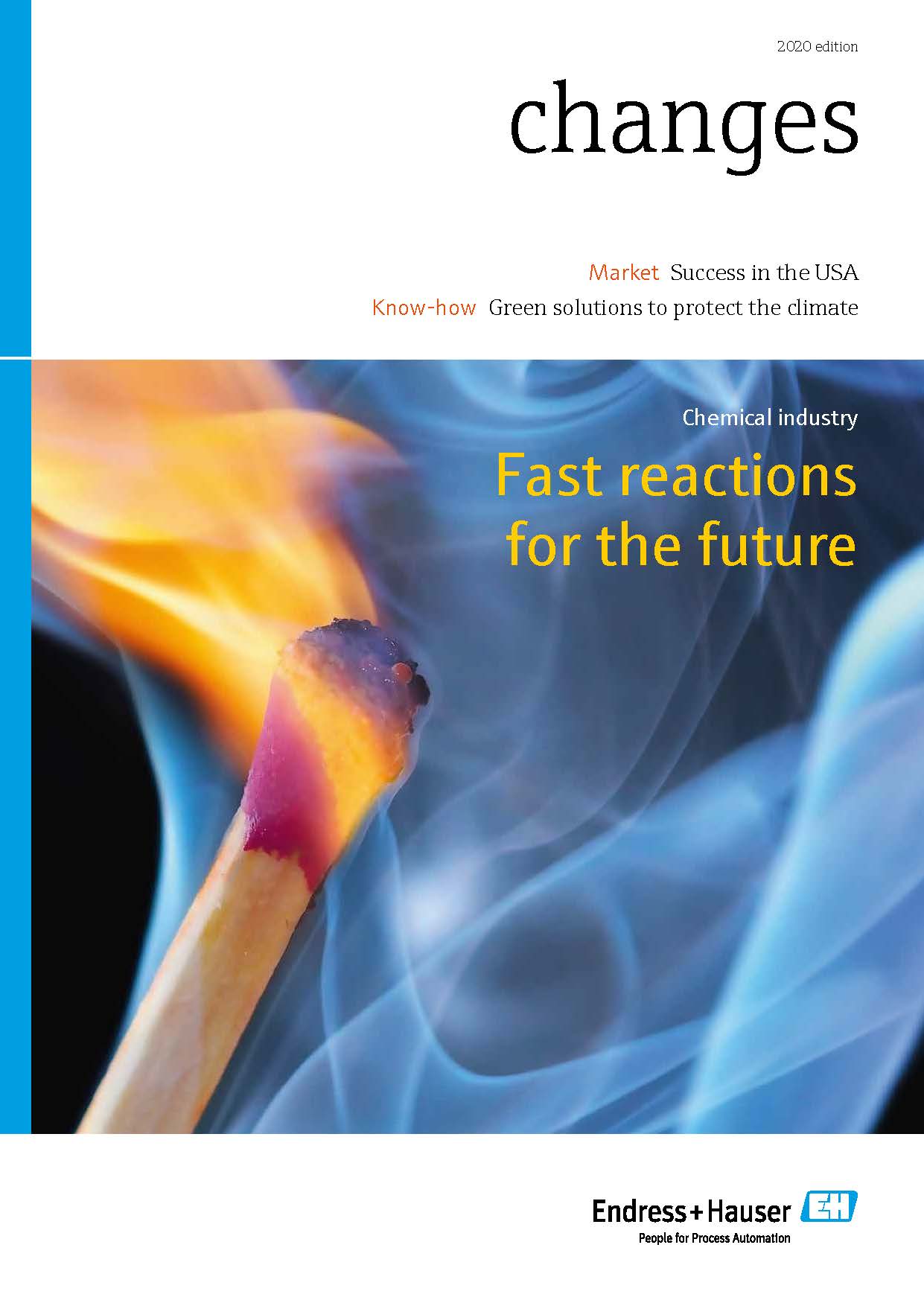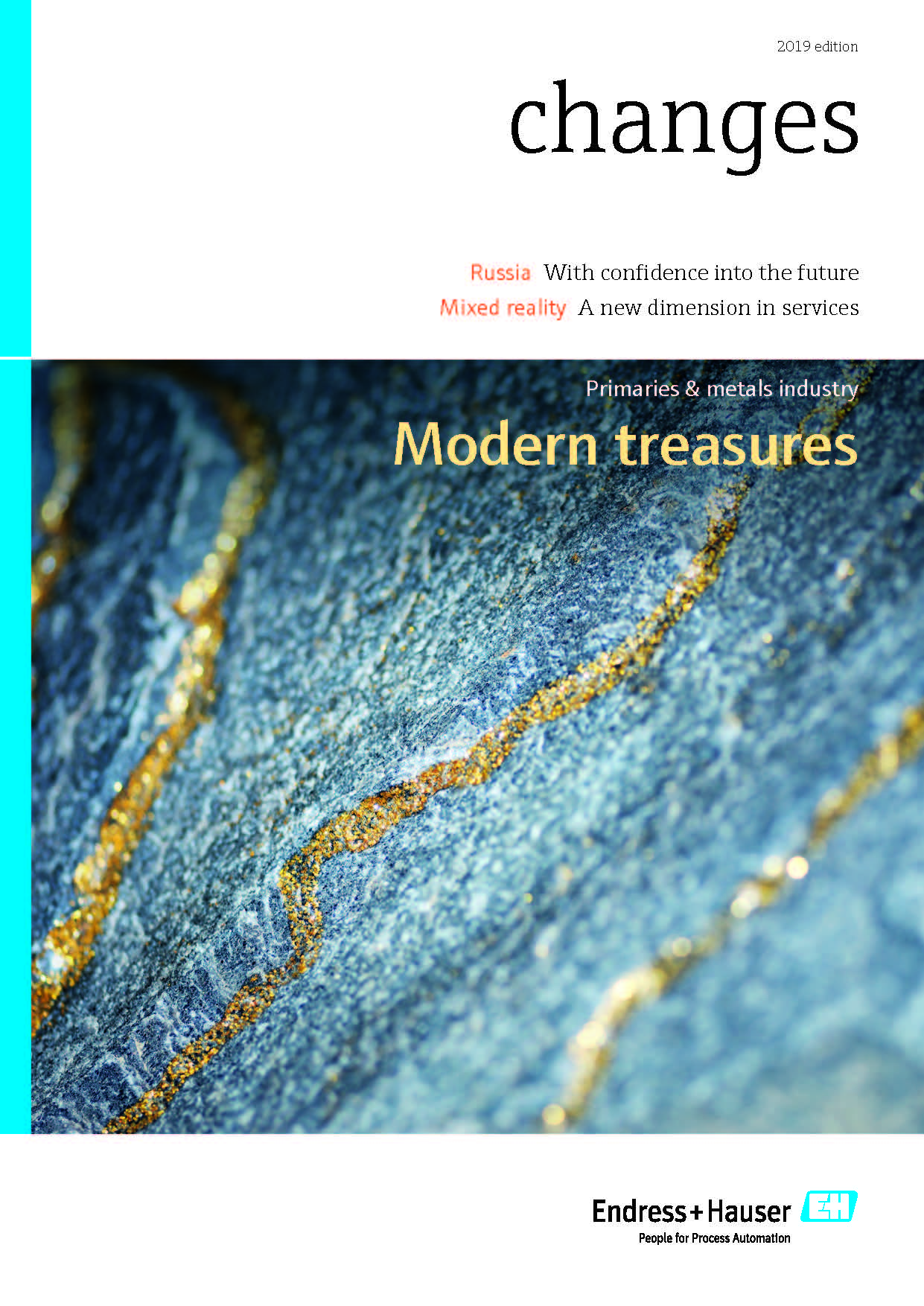Step by step
Energy and resource efficiency, decarbonization, circular economy… The green transition is challenging companies around the world. Endress+Hauser is a dependable partner for customers on their transformational journey, providing precise measurement technology along with a flair for sustainable ideas.
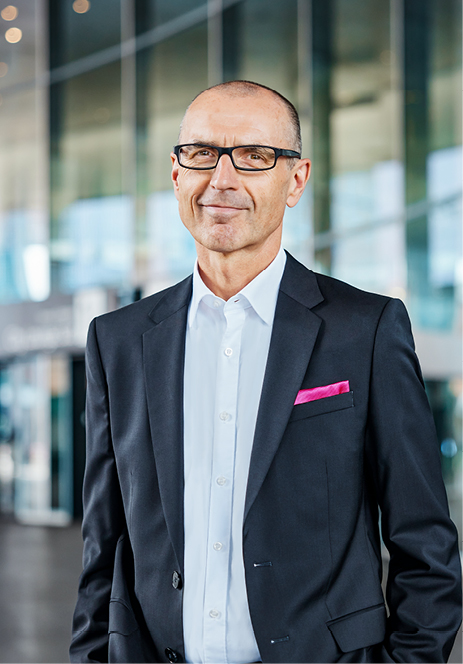
Strong leverage
Climate and environmental protection are now major drivers of change in Europe’s industrial production. Michael Sinz, director of strategic business, explains how Endress+Hauser is supporting the transition to greater ecological sustainability throughout industry.
TRANSITION
You are responsible for developing business with key customers in every sector of industry.
How much does sustainability matter to them?
A lot! This is an issue being tackled by all companies – and I really mean all. They are clearly focused on ecological aspects, with even more attention being paid to decarbonization since the UN climate change conference in Glasgow. Every industry around the world is tackling the energy transition with full force. Resource conservation and the circular economy are also core topics gaining traction.
What has gotten things moving so fast?
Investors, governments and society in general are by now broadly committed to climate protection. On a parallel track, the legislative and formal frameworks that companies need have been put in place, especially when it comes to decarbonization. CO2 reduction is already a more or less intrinsic element in the economy. To achieve that reduction, when companies set their climate goals they have to work in collaboration with their entire supply chains. That means effecting transition all the way up and down the line. I’m convinced that we will see this same effect take hold when it comes to other environmental issues.
What are the biggest challenges being faced by customers as they advance toward sustainable transformation?
They all have to adapt, optimize or establish completely new production processes while continuing to produce economically and meet increasing demand. That calls for massive investment and speedy adaptation to new technologies. The extent of the changes and the focus of the measures differ, of course, not least in proportion to how much a given industry depends on fossil carbon. The oil & gas industry has to reinvent itself. The steel industry must switch to hydrogen-based direct reduction plants. The cement industry needs to capture its emissions, which are mostly inherent to the production process. The chemical industry has to find alternative raw materials, recycle plastics and develop new products. The focus for the pharmaceutical, food & beverage and life sciences industries is on energy and resource efficiency, with water conservation a major issue.
How is Endress+Hauser helping customers through this transition?
Precise and reliable measurements are fundamental to addressing the challenges. Measurements deliver insights into processes and help make them safe, energy efficient and less demanding of resources. Customers can use our instruments and solutions for systematic reduction of their ecological footprint while reducing costs at plant level. All that gives measurement technology significant leverage. And when you hear buzzwords like hydrogen, carbon capture and utilization, or electric vehicle batteries, you can be quite sure that our instruments are playing a role here as well. Our close customer relationships, our willingness for long-term collaboration with them, to learn from them and to jointly tackle their specific challenges as best we can has enabled us to tap into the field in its infancy and get involved right from the start.
Will partnerships be even more important in the future?
Absolutely, because it takes collaboration to combine sustainability with growth. We need long-term, dependable partnerships not only to achieve climate neutrality by mid-century but also to ensure success with digitalization – the other major future topic for our industry. Everyone involved contributes puzzle pieces to the solution, which must fit together perfectly into the overall context. Besides quality, on-time delivery, application expertise, innovation skills and global reach, customers expect end-to-end sustainability. Shared visions and values will matter more and more.
How do these changing needs affect the development of Endress+Hauser?
On the product side, we have in recent years strengthened the analysis business with inline and online measurement techniques. Customers monitor quality-relevant parameters as a means to optimizing their processes in real time and enhancing their efficiency. Of course we are involved in IIoT solutions, too. Digital connectivity creates even greater transparency across the entire value-added network. Digital twins can help to simulate processes at the engineering stage and create resource- and energyefficient designs. Product design, too, increasingly incorporates sustainability aspects. Take single-use systems for the biotech industry as an example: we are developing instruments with recyclable components. And of course we are thinking about reasonable ways to decarbonize our portfolio in the future – sustainability is driving us toward innovations, too!
Published 29.11.2023, last updated 04.12.2023.
Dive into the world of the process industry through new exciting stories every month with our «changes» newsletter!
